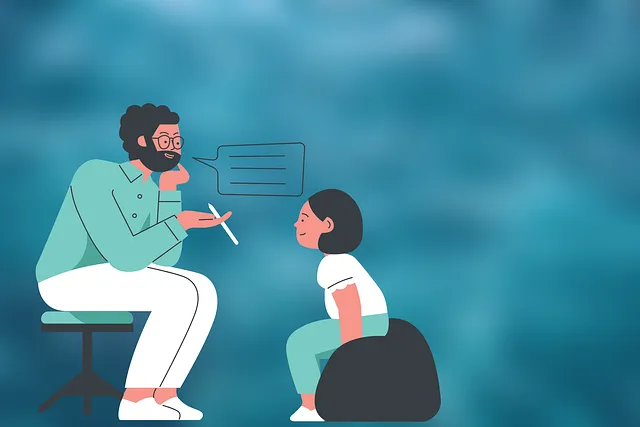Mental health conditions like depression, anxiety, or PTSD can significantly hinder social engagement, leading to isolation. Kaiser Permanente mental health phone number Longmont offers specialized support through training and therapy focusing on reading social cues, risk assessment, mindfulness meditation, and self-care routines. Social Skills Training is a key component of recovery, empowering individuals to build meaningful connections and improve quality of life. Community Outreach programs integrate exercises and journaling for holistic care, fostering an environment free from stigma where individuals can openly discuss their struggles. Overcoming social barriers through these resources leads to better relationships, enhanced well-being, and improved life satisfaction.
Social skills training is a powerful tool in managing mental health conditions, offering individuals a chance to navigate social interactions with confidence. This article explores how such training can significantly improve outcomes, especially with resources like the Kaiser Permanente Longmont mental health phone support line. We delve into the impact of mental health on social relationships and provide effective strategies for building connections. Additionally, we discuss barriers to social engagement and how skills training acts as a game-changer, fostering growth and community involvement. Discover how accessing resources like the Kaiser Permanente Longmont phone number can be a vital step towards embracing support and enhancing well-being.
- Understanding the Impact of Mental Health Conditions on Social Interactions
- The Role of Social Skills Training in Mental Health Recovery
- Kaiser Permanente Longmont: A Resource for Accessing Phone Support
- Effective Strategies for Building Social Connections Amidst Mental Health Challenges
- Overcoming Barriers and Embracing Growth Through Skills Training
Understanding the Impact of Mental Health Conditions on Social Interactions

Mental health conditions significantly shape and impact an individual’s social interactions. Conditions such as depression, anxiety, or PTSD can lead to difficulties in engaging with others, which often exacerbates feelings of isolation and loneliness. People struggling with mental health issues might experience challenges in reading social cues, maintaining conversations, or interpreting non-verbal communication, making social situations potentially overwhelming and distressing. This can hinder their ability to form meaningful connections and participate fully in social activities, which are essential for overall well-being.
Seeking support from resources like the Kaiser Permanente mental health phone number Longmont can be a proactive step towards managing these challenges. Through specialized training and therapy, individuals can learn effective strategies to navigate social interactions. This includes risk assessment for mental health professionals to ensure safe and supportive environments. Developing self-care routines that incorporate mindfulness meditation can also empower individuals to regulate their emotions during social encounters, fostering better connections and improving their overall quality of life.
The Role of Social Skills Training in Mental Health Recovery

Social Skills Training plays a pivotal role in the recovery journey for individuals managing mental health conditions. It empowers individuals to navigate social interactions with confidence, fostering connections and improving overall well-being. By focusing on essential skills like communication, empathy, and conflict resolution, this training helps break down barriers that often isolate those struggling with mental health issues.
For instance, organizations like Kaiser Permanente Longmont offer resources such as their Community Outreach Program Implementation, which integrates Self-Awareness Exercises and Mental Wellness Journaling Exercise Guidance into their support services. These initiatives ensure individuals receive holistic care, addressing both their physical and emotional needs. Through these programs, individuals learn to recognize and manage their emotions, improve their social connections, and ultimately, thrive in a supportive community environment.
Kaiser Permanente Longmont: A Resource for Accessing Phone Support

For those seeking support with their mental health journey, Kaiser Permanente Longmont offers a valuable resource in the form of phone-based assistance. The organization provides a dedicated phone line where individuals can access professional help and guidance from the comfort of their homes. This service is particularly beneficial for those who might find it challenging to attend in-person sessions due to various mental health conditions.
Through this initiative, Kaiser Permanente Longmont emphasizes the importance of Empathy Building Strategies and Mindfulness Meditation as tools to enhance well-being. By offering phone support, they aim to bridge the gap between care and those in need, fostering an environment where conversations about Mental Illness Stigma Reduction Efforts can take place openly and without judgment. The Kaiser Permanente mental health phone number Longmont serves as a vital link, ensuring that individuals receive timely assistance whenever they need it most.
Effective Strategies for Building Social Connections Amidst Mental Health Challenges

Building social connections can be a significant challenge for individuals living with mental health conditions. According to the Kaiser Permanente mental health phone number Longmont, one of the most effective strategies is participating in community outreach programs designed to foster social engagement and support networks. These initiatives often provide structured environments where participants can learn essential communication skills, practice active listening, and develop empathetic understanding—all crucial components for forming meaningful relationships.
Additionally, mental health professionals should focus on implementing a Community Outreach Program that includes risk assessment as part of their treatment approach. By evaluating potential social risks and strengths, they can tailor interventions to enhance communication strategies. This proactive step ensures individuals with mental health challenges feel empowered to initiate and maintain connections, thereby promoting a sense of belonging and overall well-being.
Overcoming Barriers and Embracing Growth Through Skills Training

Overcoming barriers to social interaction is a significant step in managing mental health conditions. Many individuals struggle with anxiety or depression may find social situations overwhelming, leading them to isolate themselves further. However, with the right support and tools, these barriers can be conquered. Social skills training offers a unique opportunity for growth by helping individuals build confidence and learn effective communication strategies. It encourages engagement in meaningful conversations, fostering connections that were once challenging.
At Kaiser Permanente mental health phone number Longmont, we recognize the power of Compassion Cultivation Practices, Self-Care Practices, and Self-Awareness Exercises in this process. Through these skills training methods, individuals can develop a deeper sense of understanding not only in themselves but also in others. It enables them to navigate social environments with increased comfort, leading to improved relationships and a stronger support system. Embracing this growth journey paves the way for enhanced well-being and a more fulfilling life.
Social skills training plays a pivotal role in enhancing the lives of individuals with mental health conditions. By understanding the unique challenges these conditions present in social interactions, we can effectively utilize resources like the Kaiser Permanente Longmont mental health phone number to access support. Through practical strategies and overcoming barriers, those facing mental health struggles can build meaningful connections and foster their recovery journey. Embracing this growth-oriented approach is essential for navigating the complexities of mental health and cultivating a supportive network.






